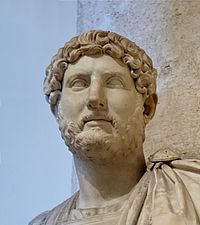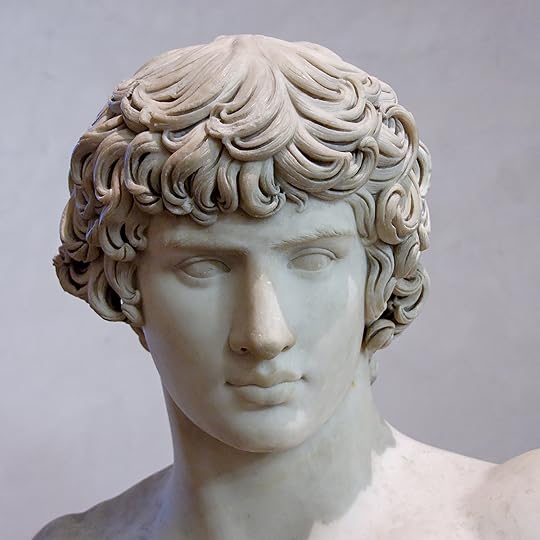Fionnuala's review
Dolors' review
9 August, 2021
After long researches, M. Yourcenar has accomplished an excellent work by presenting a contemporary-modern equivalent of Homer's epics in prose rather than a historical novel. As can be understood from the sources used at the end of the book, "Memoirs of Hadrian" is largely based on real events and people. That is, the fictional parts take up little space, yet the work is written entirely with a fictional narrative.
Hadrian, one of the most important names of the Roman Empire, was the adoptive son of Emperor Trajan whom he succeeded, and Marcus Aurelius who succeeded him was also his adoptive son. Due to his admiration for Hellenic culture, Hadrian, who knew ancient Greek philosophers and poets very well, was a personality who more than deserved to be the hero of a novel with his passion for art, poetry and philosophy, his interest in libraries and books, and his liberal and humane way of thinking for his era. I think that with the intention of emphasizing this importance, the novel is told directly from Hadrian's mouth, without an intermediary, in the first person singular.
His frequent visits to Athens due to his love for it, his spending a lot of time in Anatolia and loving those regions, yet not loving Antioch although he stayed there for a long time, his frequent travels to cities such as Alexandria and Jerusalem, and even spending more time there than in Rome, were interesting to me. I was amazed to read about his role in the formation of the current "Palestine" lands as a result of suppressing the Jewish uprisings.
The parts where it is told that marriage was only made to continue the line and that Hadrian found his true love in his eyes, that is, in his young lovers, are remarkable as the parts where the author combines his imagination with a powerful pen. In fact, it is not a work that is easy to read with a strong literary language in terms of content, but it is possible to say that it is a heavy work with thought-provoking and philosophical sentences.
It would be very good to do a short research on Emperor Hadrian before reading this book, then the novel will be more understandable. I read it with pleasure and recommend it.
\\n "Poor little soul so gentle\\n Marguerite Yourcenar...\\n"A man who reads, or who thinks, or who calculates, belongs to the species and not to the sex; in his best moments he even escapes the human."
Of this little social body
That for some hard little places,
Dark, deserted,
Alone at present you go
Alas, you will never play again..."\\n
"Little soul, tender and floating soul, companion of my body, of which you were the guest, you will descend to those pale, hard, and bare places where you will have to renounce the games of yesteryear. Let us contemplate together, for a moment still, the familiar beaches, the objects that we will surely never see again... Let us try to enter death with open eyes..."
 Adriano..."an almost wise man." (Yourcenar)
Adriano..."an almost wise man." (Yourcenar) Antínoo… "the one of anxious and passionate tenderness, taciturn femininity…" (Shelley)
Antínoo… "the one of anxious and passionate tenderness, taciturn femininity…" (Shelley)